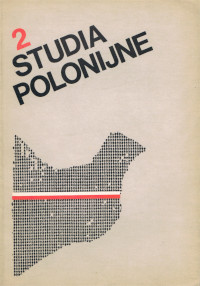The Youth of the French Polonia and the Polish National Tradition
Main Article Content
Abstract
The paper aims at showing the attitude of the French youth of Polish origin to Polish national and religious traditions and the degree of their integration within the French society. The main empirical material used by the author are the questionnary answers of a particular group of youth of Polish origin, the material having been gathered in the north of France (Nord and Pas-de-Calais departments). The answers (numbering 135) come from the youth belonging to the third generation of emigrants. The author considers the following issues: the question of so- -called „choice of homeland”, the major integrational features and the attitude towards Polish traditions, the command of Polish, choosing Polish rather than French pastorship, and the problem of psychological and cultural distinctness of the questionned youth. The great majority of the investigated group is still considerably influenced by various traits of Polish mentality and culture. They also maintain and respect various, typically Polish, lay and religious traditions. This situation promotes the „cultural diffusion” process as the youth belong to the French society. The interest in the country of the ancestors, however, does not mean any identification with the Polish nationality. This interest has to be analysed — as the answers point out — in the cultural, not national categories. For the majority of the respondents it is important to know the Polish language; almost all the answers concerning the necessity of existence of Polish associations are of positive character. The motives given by them for choosing the Polish church and services are indicative of the Polish religious character which is closely connected with the national culture of Poles. Today the barriers in the mutual relations of the French- -Polish youth are no longer noticeable. This is proved by the steadily growing number of mixed marriages. The questionnary answers clearly reveal the process of integration accompanied by a resolute and conscious rejection of assimilation, which means a breach of all bonds with the country of their ancestry.

